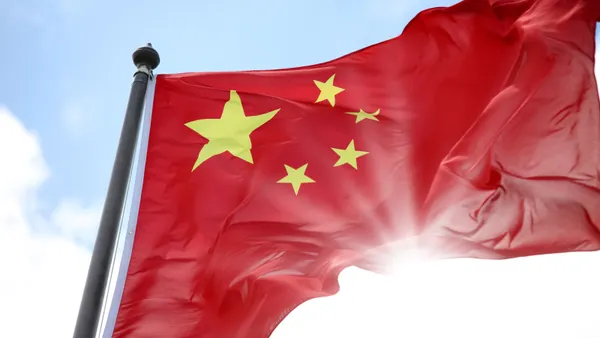Dive Brief:
- Cell therapy developer Cargo Therapeutics will scrap its top program and lay off half of its staff after study results showing the treatment, which was being tested in a form of lymphoma, doesn’t have a “competitive risk-benefit profile,” the company announced Wednesday.
- Cargo said safety concerns observed in Phase 2 testing of the therapy, firi-cel, spurred it to conduct an immediate data analysis. The company found 18% of treatment recipients experienced an immune reaction graded as severe or worse. Additionally, the remission rate associated with firi-cel, which was initially 43%, fell to 18% after three months, Cargo said.
- Cargo will now focus on other research, including a different kind of therapy heading into early testing, while evaluating “strategic options.” The company, which raised $281 million in an initial public offering in November 2023, lost three quarters of its share value after the announcement.
Dive Insight:
Cargo had been hoping firi-cel might prove helpful for people with large B-cell lymphoma who relapse after CAR-T therapies like Kymriah or Yescarta. Its treatment engineers patients’ immune cells to go after a different protein flag, CD22, than those therapies.
Academic work out of Stanford University scientists — which have been testing a similar type of cell therapy — had given Cargo and its investors reason for optimism. Data reported in December showed remission rates that supported the potential for a “durable benefit” in firi-cel’s Phase 2 trial, William Blair analyst Sami Corwin wrote in a research note in December.
The study results disclosed Wednesday, then, were “unexpected,” said Gina Chapman, Cargo's CEO, in a statement. The treatment’s lack of durability, and “higher-than-expected occurrence and severity” of immune-related side effects, fell short of the company’s expectations, she added.
Cargo will present further details at a medical meeting. Those specifics, such as patients’ baseline characteristics and CD22 expression levels, could help explain firi-cel’s fleeting effects, Corwin wrote on Thursday.
In the meantime, Cargo has reset its strategy. A second program called CGR-023, which modifies immune cells to express receptors for three proteins — CD19, CD20 and CD22 — was cleared by U.S. regulators earlier this month to begin human testing. Cargo claims targeting this trio of proteins could be useful in treating a “broad range” of B-cell malignancies and give more patients the opportunity for long-lasting remissions.
It’s also researching, preclinically, a type cell therapy made from the cells from donors instead of individual patients.
In parallel, Cargo is evaluating strategic options, a process that often results in a sale or merger. The company “should consider a reverse merger” given its “valuable” cash reserves, wrote Jefferies analyst Michael Yee.
The company had about $368 million on hand at the end of 2024 and 170 full-time employees last year, according to regulatory filings. The layoffs should extend its cash runway into the middle of 2028.
Cargo isn’t the only recent biotech IPO to report a significant setback. Since October, Neumora Therapeutics, Alto Neuroscience and BioAge Labs have lost most of their share value following disappointing study results.















